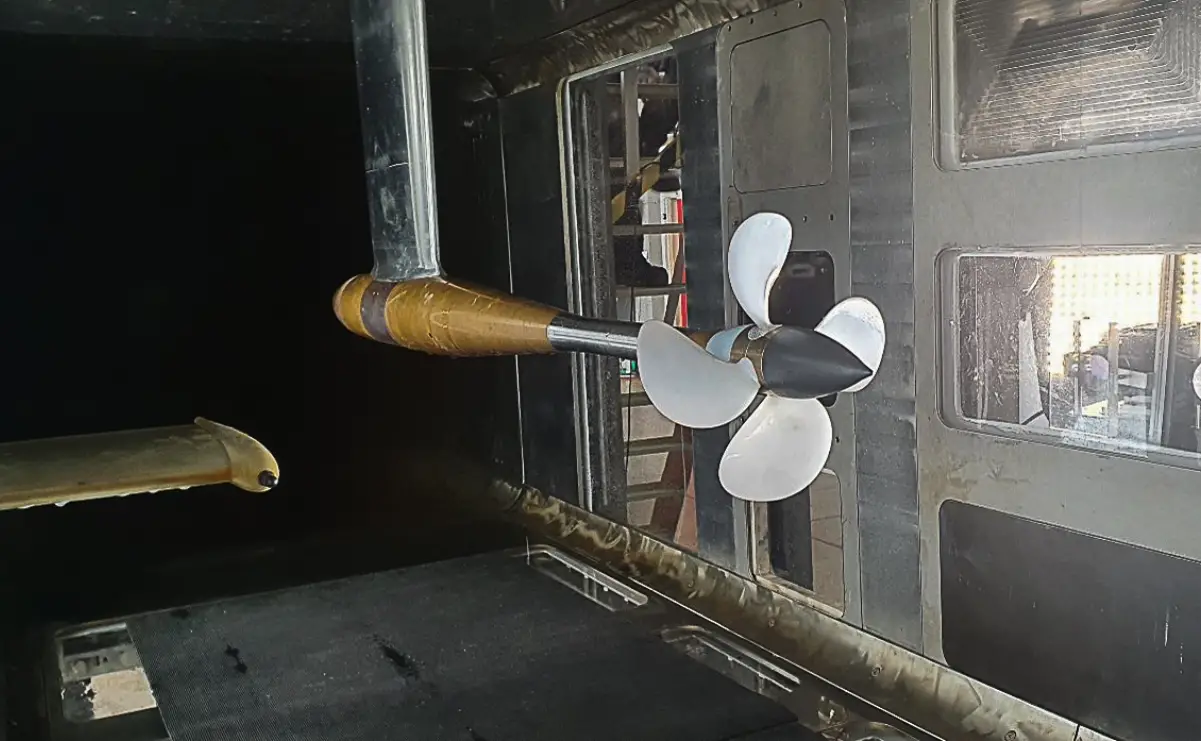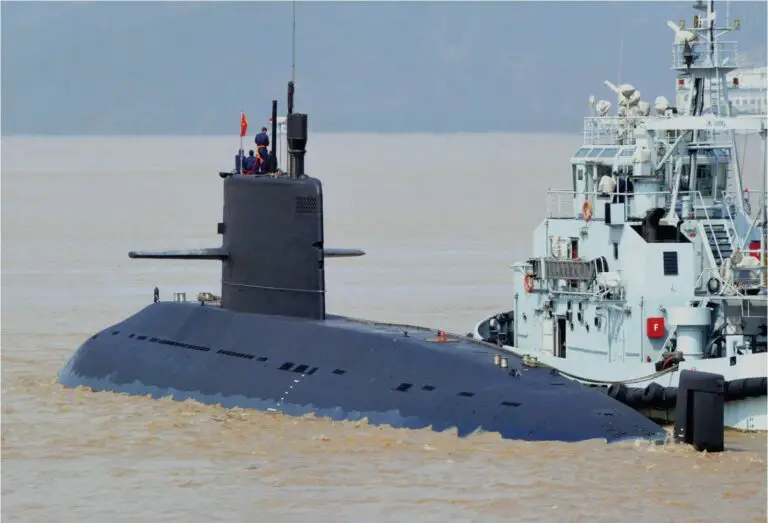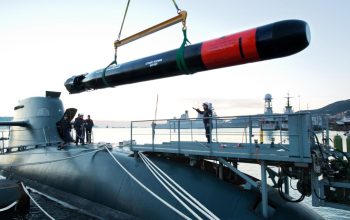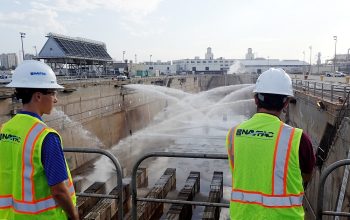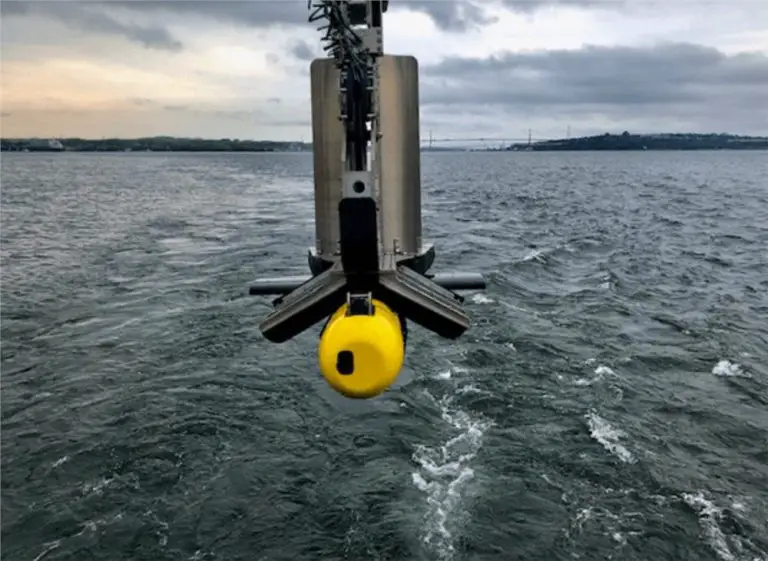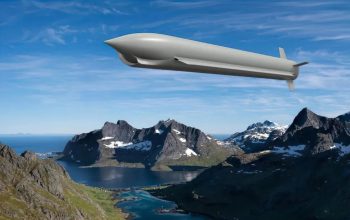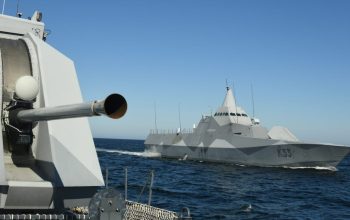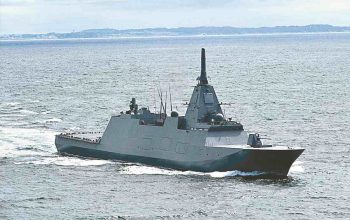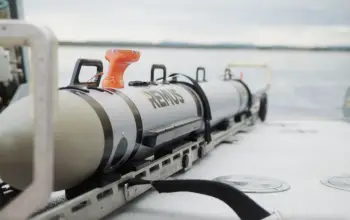The final meeting of the EDA project “Next Generation of Propellers” (NextProp) took place in Brussels this month. NextProp, a cross-domain activity involving EDA’s CapTechs “Naval Systems” and “Materials & Structures”, successfully developed models and tools for the design of low-noise naval propellers. With a budget of 4 million Euros, NextProp was cooperatively funded by Italy, Norway, and Poland. Eight partner entities from these three countries implemented the project over the past three years.
Designing modern naval propellers involves various considerations such as efficiency, weight, durability, cost, and detectability. Testing these propellers through experiments, using either scale models or full-size prototypes, is crucial but can be expensive and time-consuming. Fortunately, advancements in high-performance computing have increased the importance and feasibility of numerical simulations and modelling.
Creating a model for the acoustic field generated by propeller motion is a complex task. It encompasses factors like the flow around the hull, turbulence, fluid-structure interaction at the propeller blades, and the interaction between the hull wake and propeller. This complexity defines a multi-physics and multi-scale problem that needs simplification in a computational model. The primary project outcome is an improved software tool for the minimisation of the acoustic signature of naval propellers.
To this end, models based on hydro-elastic physics are used to predict the behaviour of typical propeller materials, including metals and advanced composites, under operational conditions. Results obtained from NextProp improve the understanding of sound generation and propagation from naval propellers and support advanced low-noise propeller design. Beyond this, NextProp brings forth new methods and setups for experimental propeller tests as well as advanced knowledge of sensor integration for the purpose of condition-based maintenance.


